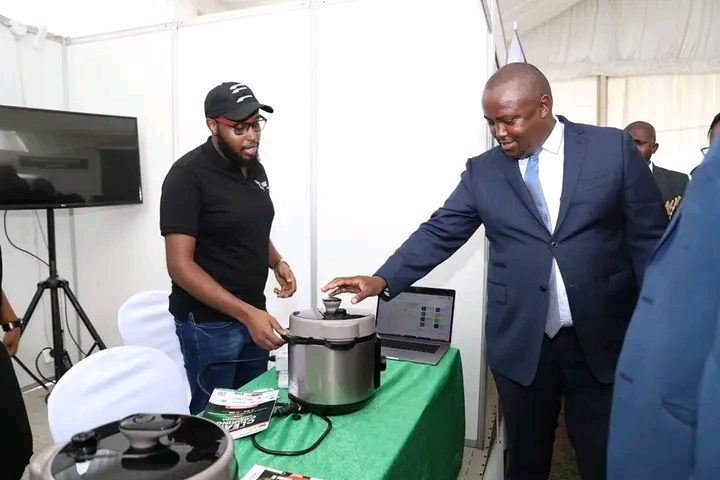Government unveils key strategies to achieve clean cooking for all Kenyans
DIANA MENETO- KNA
The Government is keen to ensure that all Kenyans have access to clean cooking solutions by the year 2028.
To help achieve universal clean cooking, the State Department for Energy has launched the Kenya National Cooking Transition Strategy (2024), the Kenya National Electric Cooking Strategy (2024), and the Knowledge Management Strategy in Kajiado during the fifth edition of the Clean Cooking Week 2024 expo.
These three key strategies will drive the cooking sec tor by defining a roadmap for clean cooking, linking electrification and cooking policies, and streamlining data management to track progress in the cooking sector, among other benefits.
In his address during the launch in Kajiado, the Principal Secretary for the State Department for Energy, Alex Wachira, stated that clean cooking energy would be a national priority.
He emphasized that it would be part of the ongoing review of the energy policy to promote the uptake of clean cooking solutions and sustainable biomass.
“We target to have 50 per cent of the population using Liquefied Petroleum gas(LPG), 30 per cent bioethanol and 10 per cent electric cooking, three per cent biogas and seven per cent sustainable biomass by 2028,” the PS said.
He remarked that to achieve this, the government needs to mobilize US$435 million spread over five years to implement Kenya National Cooking Transition Strategy and $57 million to implement the Kenya National Electric Cooking Strategy.
This could be in the form of Government funding, equity debt, grants, result-based financing, carbon financing and crowd funding.
“In this respect there fore, we wish to urge development partners and private sector who have an interest in clean cooking to come forward and identify opportunities for contributing to the national goal of Universal access to clean cooking.
We further urge the counties to actively engage in resource mobilization with a view to successful implementation of the clean cooking targets set in their county energy plans,” the PS said.
“We look forward to strengthening existing partnerships and establishing new ones. Our aim is to attract in vestment in clean cooking so as to enable the smooth implementation of the strategies.
Let us join hands to reduce the negative impacts of cooking with unsustainable forms of energy,” he added. The PS acknowledged various development partner agencies such as Foreign, Commonwealth and Development Office, UK Partner ships for Accelerating Climate Transitions, GIZ, Green Climate Fund, Energizing Development, Modern Energy Cooking Services, AFD and Loughborough.
The PS pointed out that clean cooking has major contributions to the avoidance of unsustainable wood harvests, reducing mortality associated with household air pollution and reducing the emission of greenhouse gases thereby contributing to the national climate change goals.

